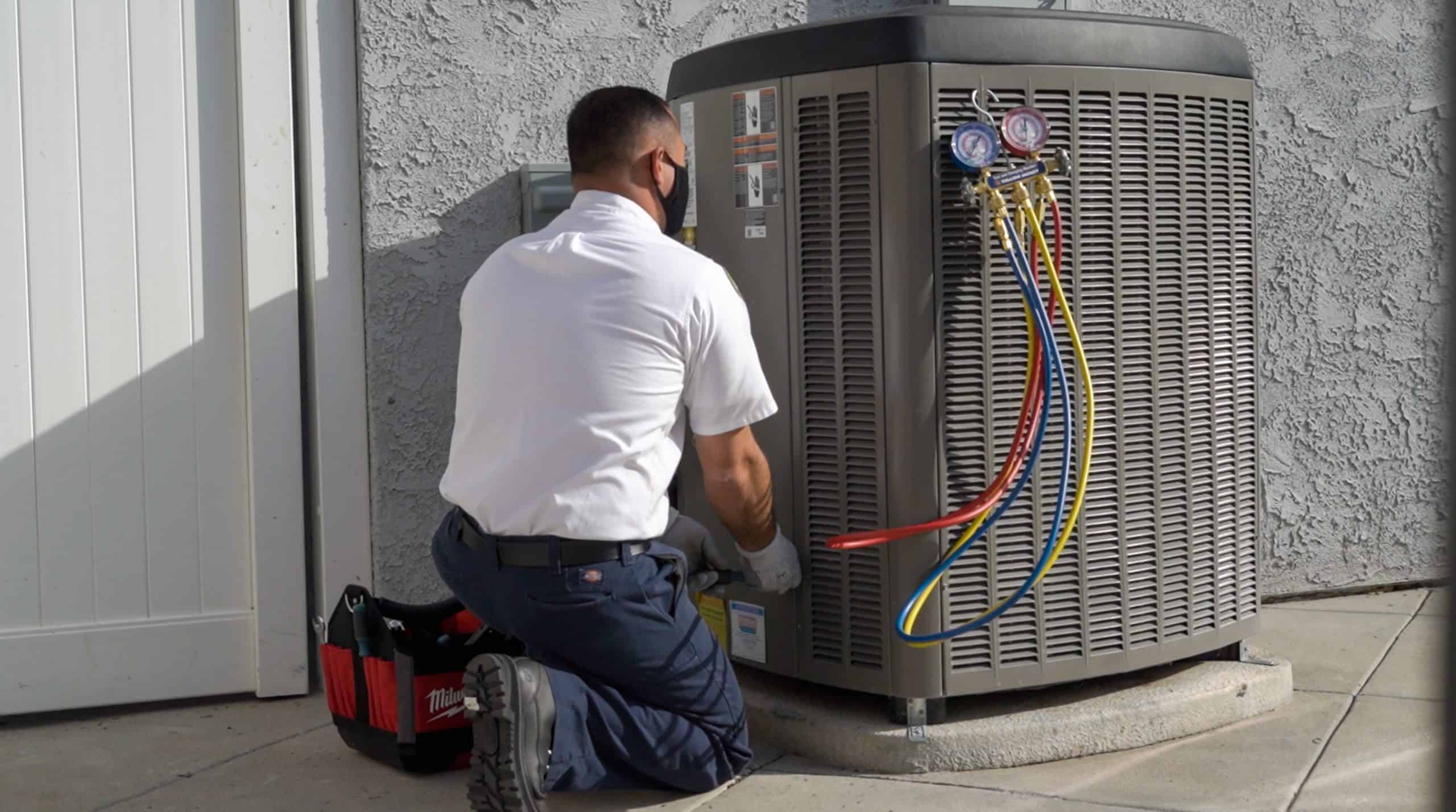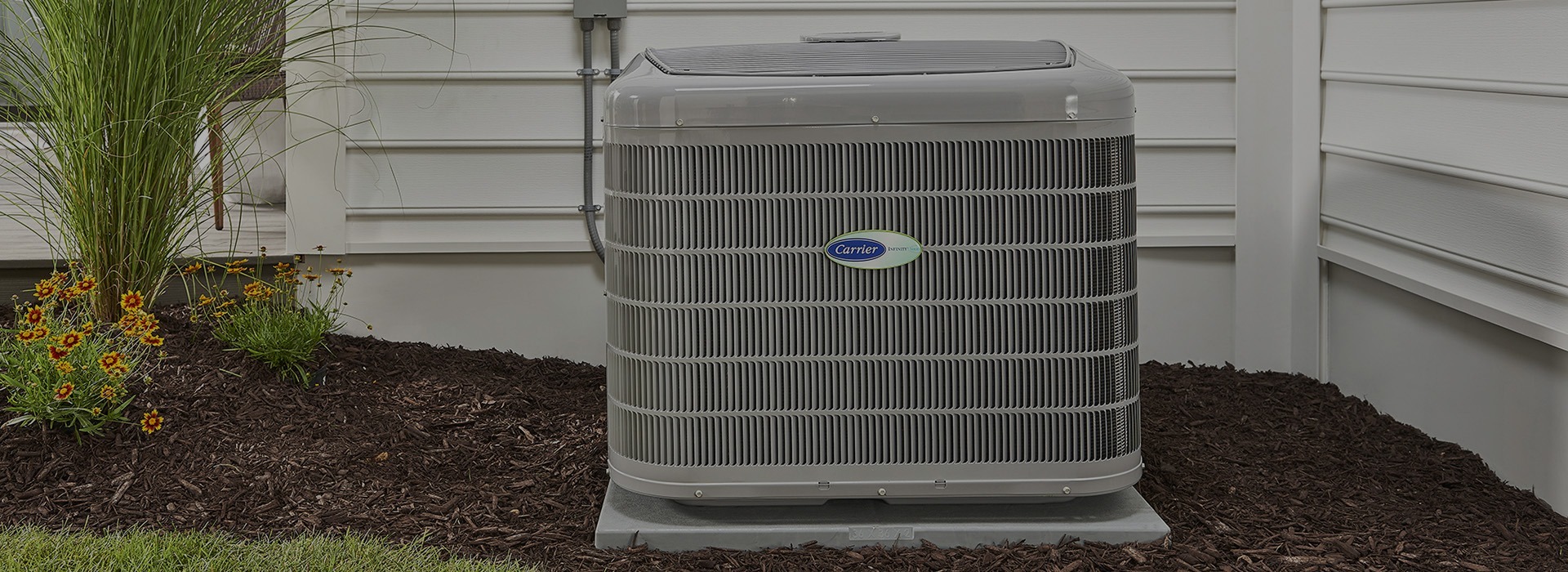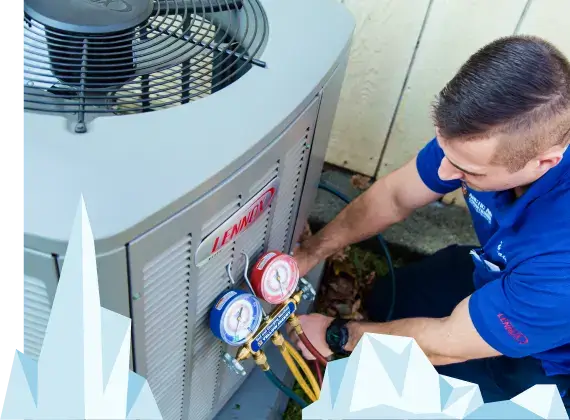Comfortable Living Made Hassle-Free with Solutions from DMAKS HVAC.
Comfortable Living Made Hassle-Free with Solutions from DMAKS HVAC.
Blog Article
How to Select the Right A/c System for Your Needs
Choosing the ideal Cooling and heating system is a crucial decision that requires careful factor to consider of various aspects. The myriad of system types offered can complicate this procedure, leading one to ask yourself which course ultimately leads to optimal comfort and performance.
Assess Your Home Dimension
Assessing your home size is a crucial first step in picking the suitable A/c system. A HVAC system that is as well little will certainly struggle to maintain comfortable temperature levels, leading to raised energy usage and use on the unit.
To properly examine your home size, measure the square footage of each room, considering elements such as ceiling elevation and the design. Furthermore, consider the insulation high quality and the number of windows, as these elements impact thermal efficiency. Homes with open flooring strategies may call for various system arrangements compared to those with many split spaces.
Making Use Of the Guidebook J tons calculation technique can supply a more precise quote of your HVAC needs. This technique accounts for different factors, including local climate, solar gain, and occupancy patterns. By thoroughly examining these aspects, you can guarantee that your chosen a/c system is properly sized, bring about boosted comfort, power performance, and durability of the tools.
Determine Your Budget
Identifying your budget is a crucial action in the heating and cooling system selection process, as it establishes the parameters for your choices - DMAKS HVAC. A heating and cooling system is a considerable investment, and comprehending your economic limits will aid limit options that fit within your methods
Begin by analyzing not only the preliminary purchase cost yet additionally setup expenses, which can vary considerably depending on the complexity of the project. Take into consideration recurring costs such as upkeep, repair work, and energy intake. A system might appear budget friendly at first however can result in greater prices gradually if it is less efficient.
It is suggested to allot a contingency fund for unanticipated expenditures that may develop during installation or initial system modifications (DMAKS HVAC). Furthermore, check out funding options or rebates that might be readily available, as these can ease the concern of ahead of time prices
Eventually, having a clear spending plan permits you to engage with cooling and heating specialists a lot more effectively, guaranteeing you receive tailored suggestions that aligns with your economic goals and home needs. By being persistent about your spending plan, you can make enlightened decisions that boost convenience without endangering economic stability.
Evaluate Power Performance
Energy efficiency plays a vital role in the total performance and cost-effectiveness of your HVAC system. Look for systems with a high Seasonal Power Performance Proportion (SEER) for cooling down and a high Annual Fuel Use Performance (AFUE) score for home heating.
In addition, think about the Energy Star accreditation, which signifies that the system meets strict effectiveness guidelines set by the Environmental Protection Company. Purchasing a Power Star-rated cooling and heating system can result in significant savings over time, particularly in locations with extreme temperature variations.
Another aspect to evaluate is the system's size and ability. A large or undersized unit can lead to ineffectiveness and boosted energy expenses. DMAKS HVAC. Correct sizing, commonly established with a Hands-on J lots computation, guarantees that the system operates at optimum performance


Consider Climate and Setting
When our website choosing a HVAC system, it is vital to consider the local environment and environmental conditions, as these aspects considerably influence the system's performance and effectiveness. Different areas experience differing temperature extremes, humidity levels, and seasonal adjustments, all of which effect heating and cooling needs.

In addition, regional environmental elements, such as air quality and potential irritants, should educate your choice. Systems geared up with advanced filtering technologies can learn the facts here now aid minimize contaminants and supply cleaner air. In addition, think about the power resources readily available in your area-- some heating and cooling systems are a lot more effective when powered by natural gas or renewable resource sources.
Inevitably, aligning find more information your heating and cooling system choice with your regional environment and ecological factors to consider will certainly lead to enhanced comfort, improved performance, and reduced power costs.
Explore System Types and Features
As homeowners look for to enhance comfort and effectiveness, checking out the numerous sorts of heating and cooling systems and their special attributes ends up being necessary. The primary kinds of a/c systems consist of central air conditioning, warmth pumps, ductless mini-split systems, and furnaces. Each system provides distinctive advantages customized to various requirements and choices.
Central air systems offer consistent cooling throughout a home, making them optimal for bigger areas. Warmth pumps act as both heating and cooling down solutions, using electricity to move warmth, which can lead to reduced power costs. Ductless mini-split systems are ending up being increasingly popular due to their flexibility and convenience of installment, permitting home owners to control the temperature in specific areas without extensive ductwork.

Verdict
To conclude, selecting the appropriate cooling and heating system demands mindful consideration of different aspects, including home size, budget restrictions, power efficiency, local climate, and readily available system types. A comprehensive assessment of these components makes certain ideal comfort and cost-effectiveness. By complying with an organized technique, homeowners can make informed choices that align with their details needs and preferences, ultimately bring about improved indoor air quality and energy financial savings.
Report this page